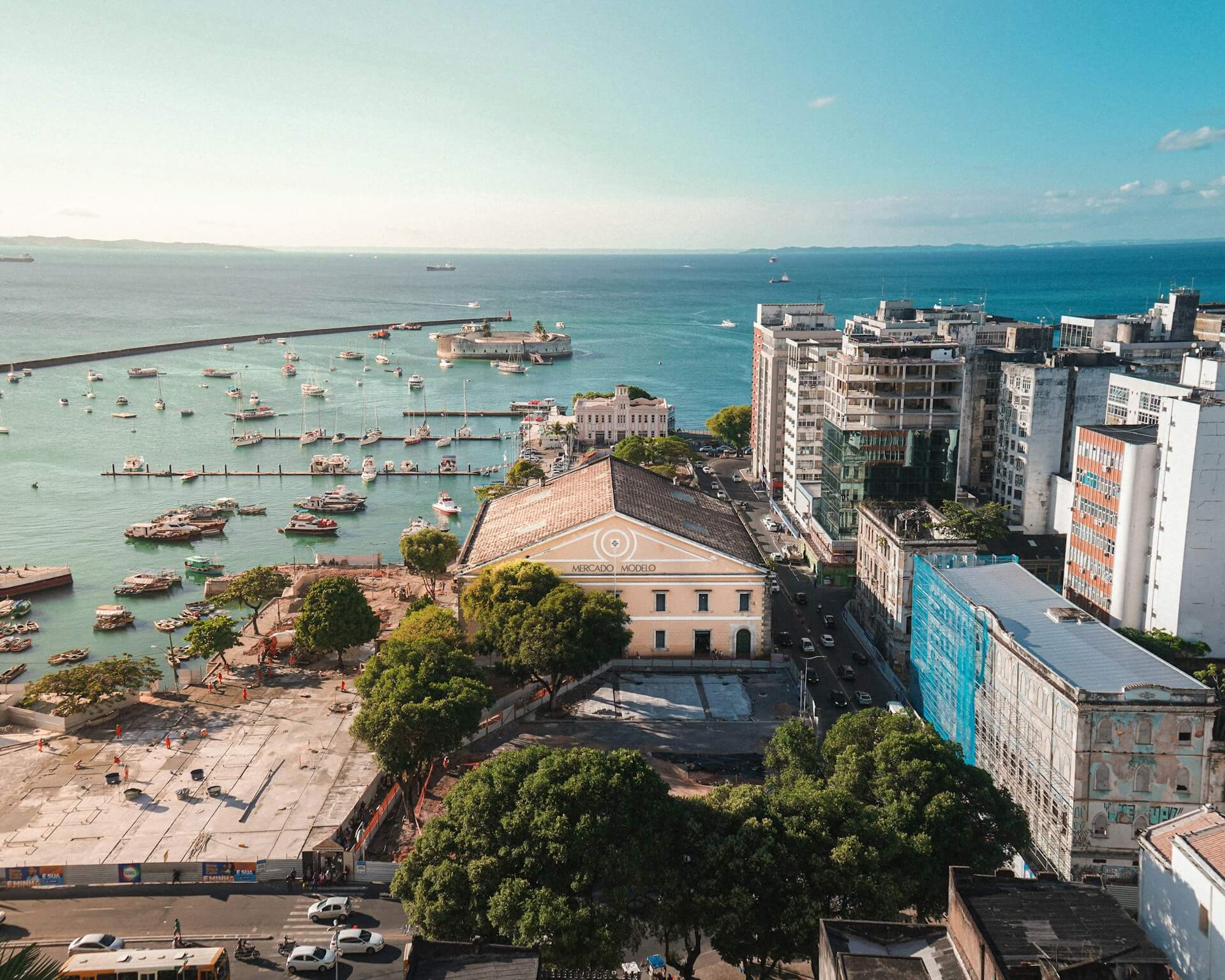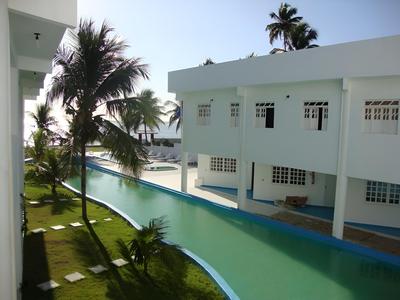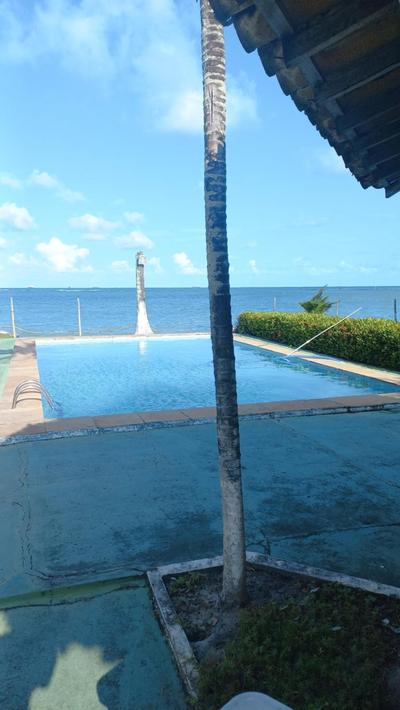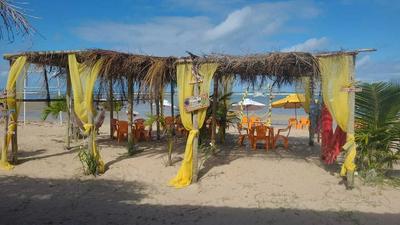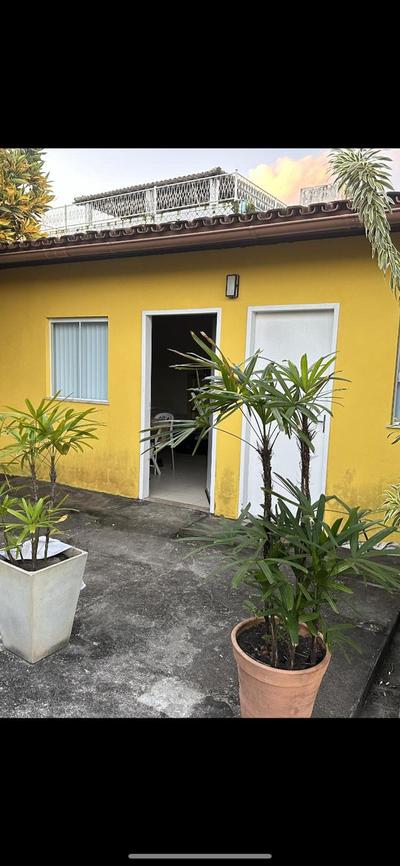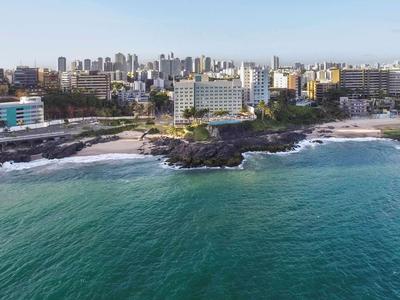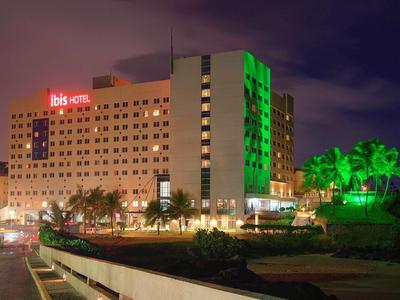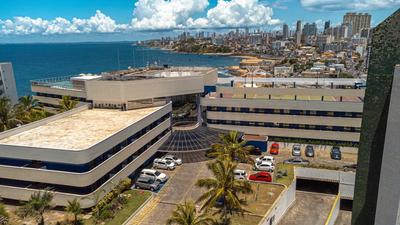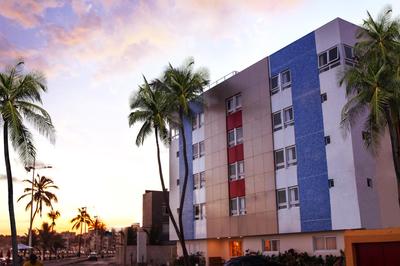When to visit Salvador da Bahia?
Salvador da Bahia is blessed with a warm tropical climate, making it a year-round paradise for travelers. However, understanding the nuances of its seasons can greatly enhance your visit. The summer months, from December to February, are vibrant but also quite hot and humid, attracting throngs of visitors. This period coincides with Christmas and New Year’s celebrations, showcasing lively street parties and cultural events. Spring (September to November) is particularly pleasant, marked by fewer tourists and comfortable temperatures, perfect for exploring the city’s rich history and outdoor activities.
Autumn (March to May) brings occasional rains, making it a quieter time for travel but ideal for enjoying the lush landscapes. The rainy season peaks in April and May, yet the showers are often brief, giving way to sunny afternoons. Winter, from June to August, is cooler and drier, making it great for those who prefer milder temperatures, along with the possibility of experiencing the famed International Festival of Bahia in July. Each season offers a unique glimpse into the cultural and natural beauty of Salvador, so choose based on what experiences you seek!
How to get to Salvador da Bahia?
Traveling to Salvador da Bahia is relatively straightforward, thanks to its well-connected transport options. The primary gateway to the city is Deputado Luís Eduardo Magalhães International Airport (SSA), which serves domestic and international flights. Major airlines connect Salvador with cities across Brazil and direct flights come from several major international destinations. The airport is about 30 km from the city center, with taxis and rideshare options readily available.
For those traveling by ground, Salvador is accessible by bus from many major Brazilian cities, including Rio de Janeiro and São Paulo. The main bus terminal (Terminal Rodoviário) in Salvador is convenient, with frequent services, but be prepared for a journey that can take several hours depending on your origin.
While Salvador lacks a train service, renting a car is an option for those wanting to explore at their own pace. The city is also well-connected by roads, offering scenic routes along the coastline. Overall, there are plenty of choices to ensure a smooth arrival to this vibrant city.
Tourist activities in Salvador da Bahia
Salvador da Bahia is a vibrant cultural hub, bursting with activities to engage every type of traveler. Daytime adventures can include wandering through the charming streets of the Pelourinho district, a UNESCO World Heritage site known for its colorful colonial architecture and historical significance. You might also explore the many beautiful beaches such as Porto da Barra and Flamengo, offering sunbathing, swimming, and water sports.
When the sun sets, Salvador transforms into an exciting nightlife scene. Local bars and restaurants serve traditional dishes like acarajé, while live music fills the air in spots like Casa do Benin. For culture enthusiasts, the city’s rich heritage is on display in museums such as the Museum of Brazilian Music and the Afro-Brazilian Museum.
Outdoor enthusiasts can enjoy activities like hiking in the nearby Chapada Diamantina or relaxing at the beautiful Itaparica Island. Don't forget to explore local markets for handcrafted souvenirs or sample street food delicacies that reflect the region's rich culinary traditions.
Events and festivals
Salvador da Bahia pulses with life, especially during its vibrant festivals and events that highlight its cultural richness. The most notable event is the Carnival, held in February or March, attracting millions with its lively parades, dazzling costumes, and infectious samba music. The festivities spread throughout the city, especially in the historic Pelourinho area.
The Festival of Iemanjá takes place on February 2nd, celebrating the Afro-Brazilian goddess of the sea with offerings and vibrant processions at the beach. In June, the city embraces the São João Festival featuring forró dancing, bonfires, and traditional foods that honor the rural culture of Brazil.
Throughout the year, other events like the Bahia Music Festival in July and the Festival Internacional de Jazz in August offer diverse musical experiences. No matter when you visit, there’s a good chance you’ll experience the unique energy of Salvador through these cultural celebrations!
Family and kids activities
Salvador da Bahia is incredibly family-friendly, offering a variety of activities sure to delight children and parents alike. Start at the famous Parque Metropolitano de Pituaçu, an expansive park where families can enjoy picnicking, biking, and exploring nature trails. It's an excellent place for kids to develop a connection with the environment.
The Cidade da Criança (Children’s City) is a fantastic venue as well, with interactive exhibits and fun attractions specifically designed for younger visitors. For a splash of excitement, Beach Park and local beaches offer safe swimming conditions and fun activities like paddleboarding.
Museums like the Museum of Brazilian Music often have special programs for kids, providing engaging experiences surrounding music and culture. Don't miss the opportunity to indulge in local sweets or enjoy a hand-crafting activity at some markets. Salvador is packed with family activities, ensuring memorable moments for all!
What to see in Salvador da Bahia?
Salvador da Bahia is rich with attractions that showcase its diverse culture and history. A visit to the iconic Elevador Lacerda offers stunning views of the All Saints Bay, connecting the lower city to the upper city. Nearby, the Praça da Sé provides insight into Salvador’s colonial past with its beautiful cathedral and surrounding historical buildings.
The stunning Igreja de São Francisco stands out with its ornate baroque design, while the Mercado Modelo is perfect for picking up local crafts and souvenirs. For something different, take a stroll through the Farol da Barra, where the lighthouse marks the entrance to the harbor and also hosts a museum.
Key attractions include:
- Pelourinho: The historic center known for its colonial architecture and vibrant street life.
- Itaparica Island: A short boat ride away, it offers beautiful beaches and a relaxing atmosphere.
- Fortress of São Marcelo: A historic military fort with unique views of the bay.
- Bonfim Church: A sacred place known for its stunning façade and cultural significance.
Each landmark offers a glimpse into the soul of Salvador, making your visit unforgettable.
Accommodation in Salvador da Bahia
Salvador da Bahia provides diverse accommodation options suitable for various budgets and preferences. In the heart of the city, the Pelourinho district is famous for its charming boutique hotels and hostels, perfect for those wanting to immerse themselves in the culture. Options like the Zank Boutique Hotel offer cozy atmospheres and stunning views.
For luxury travelers, locations near the beach, such as the Barra area, are ideal. Hotels like the Sol Bahia offer upscale dining and close proximity to Salvador's vibrant nightlife. The Ondina neighborhood has numerous mid-range hotels catering to families and solo travelers.
Hostels can also be found throughout the city for budget-conscious travelers, with vibrant atmospheres, often hosting events and communal dinners to foster connections among guests. Overall, regardless of your budget, Salvador's accommodation choices allow visitors to conveniently explore the city’s rich history and attractions.
Important numbers and information
- Emergency Services: 190 (Police), 192 (Ambulance), 193 (Fire)
- Tourist Information Centers: Located at Mercado Modelo and the airport.
- Main Hospitals: Hospital das Clínicas and Hospital São Rafael.
- Airport Contact: Deputado Luís Eduardo Magalhães International Airport: +55 71 3480-9000
- Public Transport Info: Website and apps available.
- Taxi Apps: 99 and Uber widely used.
- Currency: Brazilian Real (BRL). Credit cards widely accepted, cash often preferred in markets and local shops.
Where to eat?
Salvador da Bahia is a culinary haven, famed for its vibrant flavors and unique dishes that reflect its rich cultural heritage. The city's popular cuisine includes specialties like acarajé, a deep-fried ball made of black-eyed peas stuffed with shrimp and spices, typically sold by street vendors. Don’t miss trying moqueca, a flavorful seafood stew cooked with coconut milk, often accompanied by rice and farofa.
The best areas for dining are the historic Pelourinho for authentic local restaurants and the beachfront neighborhoods of Barra and Ondina for seafood eateries offering serene views. For a more upscale dining experience, head to the Restaurant O Comendador or Casa do Bonfim.
A thriving street food scene can be found throughout Salvador, with prices averaging around R$10-30 for a meal at local eateries. The combination of rustic charm and flavorful dishes make Salvador a true delight for food lovers!
Nightlife – where to go out?
Salvador da Bahia boasts a vibrant nightlife scene that offers something for everyone. One of the best areas to experience the local nightlife is the Rio Vermelho district, known for its lively bars and stunning coastline views. Venues like Largo de Santana are popular with both locals and travelers, featuring live music and a festive atmosphere.
The club scene is electrifying, with places such as Casa de Tereza, where guests can enjoy traditional Bahian music along with delicious cocktails. For dancing, check out the famous Villa Bahía club, where local DJs spin an incredible blend of music, from samba to contemporary beats.
Two other notable places are the bohemian and artistic atmosphere at Boteco do França and the lively ambiance of Palacio da Aclamação, making them great spots to end your night. Regardless of your preference, Salvador's nightlife is a celebration of culture and rhythm that leaves a lasting impression!
Transport and taxis
Getting around Salvador da Bahia is quite convenient thanks to its public transport network, which includes buses and a metro system. Public buses cover a vast part of the city with fares typically around R$4. Be sure to have change handy since some buses may not accept notes. The metro has limited reach but can be quick for traveling within central areas.
Taxis are abundant, easily found on the streets and at designated taxi ranks. You can also use popular rideshare apps like Uber and 99 for reasonable rates and convenience. Keep in mind that during peak hours, traffic can be significant, especially in historical areas such as Pelourinho.
Safety tips include opting for recognized taxi services and rideshare options. Always agree on fares in advance for longer rides and avoid traveling alone late at night. Navigating Salvador is manageable, making your exploration of this vibrant city stress-free.
- Public Transport: Buses (R$4 fare) and limited metro.
- Taxis: Readily available; agree on fares in advance.
- Ride Apps: Available; popular options include Uber and 99.
- Safety Tips: Use recognized services and avoid traveling alone at night.
Parking and public garages
Parking in Salvador da Bahia can be challenging, particularly in the central areas where demand is high. The city has designated parking zones, especially around tourist attractions and nightlife districts. Rates typically hover around R$5 per hour, with daily garage rates ranging from R$30 to R$50, especially amid high tourist season.
Public garages are available, but they may fill up quickly during peak times, so arriving early is advisable, particularly in busy districts like Barra and Pelourinho. Street parking is common, but make sure to check for any signage indicating restrictions, as unauthorized parking can result in fines or towing.
As a tip, consider using commercial parking services for longer stays. Plan ahead for parking during events or festivals, which can significantly boost demand. Understanding parking conditions can greatly enhance your experience in Salvador.
Surroundings of Salvador da Bahia
Exploring the surroundings of Salvador da Bahia opens up a treasure trove of breathtaking landscapes and historical sites. A must-visit is the nearby island of Itaparica, just a short ferry ride away, offering serene beaches and picturesque villages. It's perfect for day trips filled with relaxation and exploration.
Another highlight is the town of Cachoeira, known for its colonial architecture and artisanal markets, about two hours from Salvador. This charming town also hosts cultural festivals showcasing traditional Bahian music and dance.
If nature calls, consider a visit to Chapada Diamantina National Park, known for its stunning waterfalls and unique rock formations. It's a bit further away but worth the drive for hiking and pure escape into nature.
Whether you’re looking for beaches, cultural experiences, or nature adventures, the areas surrounding Salvador offer exciting escapes from the city’s hustle and bustle.
